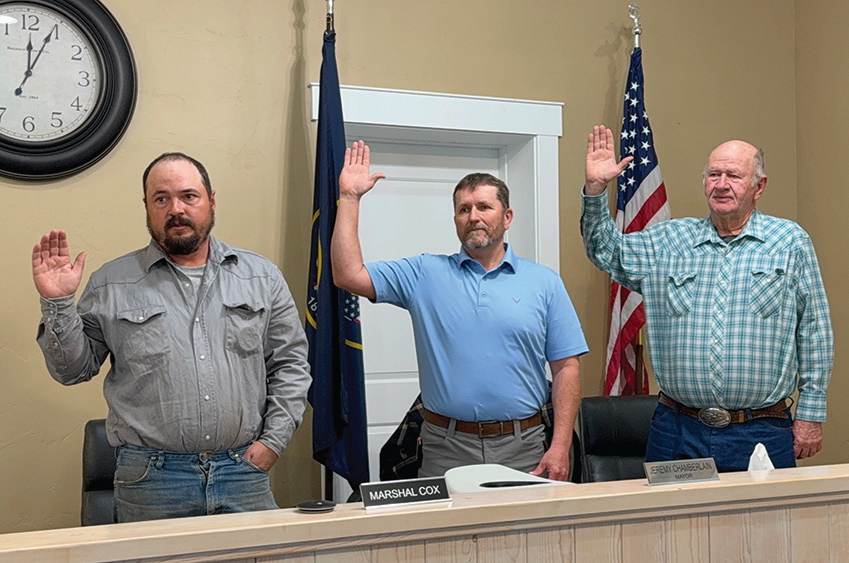Hemp law discussed at Kane County Commission
- Olivia Weissblum

- Jun 30, 2021
- 4 min read
Updated: Feb 25, 2022
The Kane County Board of Commissioners met on Tuesday, June 22, at 10 a.m., at the Kane County Courthouse. The meeting began with a public comment period.
Rocel Bettencourt, Johnson Canyon, commented on the commission’s plan to review Ordinance 9-10-19, regulating the growing of industrial hemp, in light of the recently passed UT HB0171, which restricts municipalities’ authority to regulate cannabis production. Bettencourt asked that the commission continue to uphold the ordinance, which restricts cannabis growth in residential parts of the county and imposes a 12-mile buffer around public establishments such as schools. Bettencourt criticized HB0171, stating it “breeds apathy instead of citizenship” and discourages residents from engaging with local government.
Matthew Fisher suggested that County Commission meetings be held at 6:30 p.m., as with meetings of the Planning and Zoning Commission, to improve community representation. Fisher also requested the golf course currently being planned by the Kane County Water Conservancy District go to a ballot question, giving citizens a voice in determining how the money and water is to be used.
Judy Woolley agreed with Fisher’s comment regarding the golf course. Woolley also weighed in on the proposed ordinance establishing a Kane County Constitutional Defense Council, urging the commission to ensure that civilian voices are included in the body.
Rocky Teel, Johnson Canyon, expressed opposition to the potential deregulation of industrial hemp in light of HB0171, citing concerns the crop’s presence in the county could lead to increased drug abuse.
Ralph Morrison, Johnson Canyon, called HB0171 an “authority grab” and “a big fat middle finger to the counties.” He added that the hemp market is currently saturated and there is greater growth potential in hay.
Jay Riggs, Kanab, commented that hemp is a legal crop with a very low and controlled THC content and should therefore be allowed to be grown by anybody.
Dusty Reese, President of the Kane County Farm Bureau, asked that the county roll back local restrictions on hemp in favor of state regulations. Reese decried the conflation of industrial hemp with marijuana, citing the legal requirement that crops found to have THC levels above 0.3 percent be destroyed. She added that HB0171 was written to protect farmers by enabling them to make their own choices regarding the cultivation of a legal product.
Reese also criticized the view that additional restrictions should be imposed to preserve property rights, arguing that such measures impinge on the property rights of farmers. “You can’t inhibit someone else’s property rights to protect your own,” Reese concluded.
The commission opted to discuss the review of the hemp ordinance following the conclusion of the public comment period. The commission acknowledged that the ordinance effectively prohibited the growth of hemp in the county, as the majority of agricultural areas fall within the imposed 12-mile buffer zones.
County Attorney Rob Van Dyke clarified HB0171 would not affect the enforcement of the current ordinance should it remain in place, but would prevent the ability to reinstate it in the future if it were to be changed presently. The commission voted to keep the current ordinance in place, citing a unanimous recommendation to do so from Planning & Zoning and concerns about HB0171’s restrictions of local government authority.
The commission discussed a proposed ordinance to create a local constitutional defense council for Kane County. The ordinance would establish a board consisting of all three commissioners, the sheriff, the county attorney and two additional members of the public to be appointed by the commission. The board would have a duty to review state and federal laws, executive orders, and agency actions to determine the effects on the county and, if determined to be necessary, request an opinion from the county attorney on the law’s constitutionality. If a law is determined to be illegal or unconstitutional, the council would be permitted to recommend that local officials refrain from enforcing it.
The council would not have the authority to void state or federal law within the county nor to legally protect citizens from enforcement by state or federal authorities. The commission concluded that a public hearing will be held on the ordinance before it is brought to a vote.
The commission approved two appointments: Clayton Hanson to the Kane County Water Conservancy District and Aaron Bonham to the Planning and Zoning Commission.
The commission approved an ordinance vacating a portion of County Road K6140.
The commission approved an amended and extended subdivision, North Fork Estates, and approved two subdivision final plats, Sunflower Valley Estates and Crimson Estates Phase 2.
The commission approved the disposal of Kane County Travel Council surplus equipment.
The commission passed two resolutions, one amending the Kane County Employee Handbook regarding the Kane County pilot car, and the other approving the release of liability form for the Kane County pilot car.
The commission passed a resolution establishing June 19 as Juneteenth National Independence day and as a federal and local holiday.
County Clerk/Auditor Karla Johnson reviewed the Kane County certified tax rates for 2021 and the Kane County fraud risk assessment. Both were approved by the commission.
Last, the commission approved an outdoor recreation grant with the Bureau of Land Management for mountain bike trails in the Chocolate Cliffs to the east of Kanab.



